Amendment of the Electricity Law is an urgent requirement
Reporting to the National Assembly delegates during the discussion session in groups, Minister of Industry and Trade Nguyen Hong Dien emphasized: Electricity is considered the bread of the economy. Electricity must be one step ahead to ensure the country's socio-economic development. The Electricity Law was promulgated in 2004 and has undergone 4 amendments (the most recent amendment was in September 2023), but all 4 previous amendments only amended and supplemented a number of articles and resolved a number of arising problems. Up to now, many provisions of the current Electricity Law have revealed shortcomings and problems, unable to resolve new and important problems arising in practice.
According to the Minister, in the face of the urgent need for electricity growth according to the plan, without guaranteed and transparent mechanisms, it is clearly impossible to implement. Because by 2030 (that is, more than 5 years from now), we must invest twice the current total capacity of the entire system, equivalent to 150,524 MW, and by 2050 (that is, 25 years from now), it must reach 5 times the current capacity, equivalent to 530,000 MW nationwide.
In addition, to achieve the goal of carbon neutrality by 2050 that Vietnam has committed to the international community, the energy transition process in our country also requires a very open and synchronous legal system related to this field to be implemented. This means that Vietnam must develop renewable energy, and at the same time must strongly convert fossil-based electricity sources from coal to gas electricity, because gas electricity in the period after 2030 will not be able to develop anymore (because gas electricity emits up to 40% more than coal electricity); moreover, natural gas is also not an endless source and the price of this fuel source according to market prices is also quite high. This is very risky when Vietnam is not a country that owns a large amount of natural gas output to supply power plants.
The Electricity Law needs to be comprehensively revised.
Referring to the reason for the need to comprehensively amend the Electricity Law, Minister Nguyen Hong Dien said that the Drafting Committee proposed to the Government to report to the National Assembly Standing Committee and the National Assembly Standing Committee agreed to take the title of the Law Project as the Electricity Law (amended), not to amend and supplement a number of articles.
Firstly, when supervising electricity activities and implementing the Electricity Law, the National Assembly Standing Committee issued Resolution 937/NQ-UBTVQH dated December 13, 2023, which requires the need to have a comprehensive mechanism to resolve current shortcomings and difficulties in the electricity sector.
“Overall, it is only possible to amend comprehensively, not some things. Because if one thing is amended, another will be stuck. Therefore, the drafting agency must comply with the Resolution and implement it according to regulations,” the Minister informed, adding that in reality, many problems occurred before, all the problems that the competent authorities have pointed out, we have tried to include in the Electricity Law (amended) to remove obstacles.
Second, the drafting agency proposed to comprehensively amend the current Electricity Law because Vietnam is increasingly integrating deeply with the world, so the development of the ASEAN power grid and the wider Asia- Pacific region is taking place very quickly and strongly. If the law is not amended, attracting investment will be very difficult.
Third, in recent times, the Party and the State have had many new policies and guidelines, but in reality, legalization has not kept up. Even Resolution 55-NQ/TW of the Politburo on the orientation of Vietnam's national energy development strategy to 2030, with a vision to 2045 and subsequent resolutions of the Central Committee, we have thoroughly grasped and institutionalized them, but they have not reached the scope and there still seem to be contradictions and overlaps between these laws and other laws. Obviously, electricity has such characteristics, if we do not prioritize implementation according to the Electricity Law, the implementation of electricity projects will be extremely difficult.
Fourth, Vietnam's electricity demand and power are increasing rapidly, so it is necessary to amend the Electricity Law to remove obstacles and difficulties and free up resources.
Fifth, many types of power sources such as renewable energy (solar power and wind power) in many localities across the country have potential for development, but without a synchronous and feasible mechanism, further development will continue to be hindered. Therefore, it is necessary to redesign synchronously and prioritize power projects that must be implemented in accordance with the Electricity Law.
Sixth, special mechanisms are needed to decide on investment policies for emergency power projects.
Urgent projects are stipulated in the Investment Law, but urgent projects have not yet existed. For example, in the past 10 years, we have hardly had any large power source projects. Investors have “taken the part and left it there.” There are projects that have “taken the part” for 15-17 years but have not been implemented, but they have not been able to collect any revenue. However, recently, a project in Quang Binh was returned by a Thai investor, but it is not easy to hand it over to a state-owned enterprise.
In addition, the Government currently does not have the authority to decide on urgent projects. Therefore, this Electricity Law must be designed with regulations, giving the competent authorities (here the Government), the executive agencies the right to decide on urgent projects including stations, power lines and power source projects, only then can the progress according to the 8th Electricity Plan be met.
"This Electricity Law fundamentally amends the shortcomings and problems arising in practice, including sanctions for investors who are behind schedule," Minister Nguyen Hong Dien added.
Submit to the National Assembly for consideration and approval of the Electricity Law project (amended) at a session
Referring to the issue of submitting the Electricity Law (amended) to the National Assembly for consideration and approval at a session, Minister Nguyen Hong Dien said that the Electricity Plan VIII determined that by 2030, we must reach twice the current capacity. There are still 5 years left, if the Electricity Law (amended) is not passed this year, there is no way to implement it.
The Minister cited an example of a coal power project (according to the old plan that was just allowed to continue) that would take 5-6 years. A gas power project would take 7-8 years, and if a nuclear power project were to start now, it would take about 10 years. Meanwhile, current sources no longer have room, including hydropower, and coal power only has 5-6 projects according to the old plan.
“Therefore, if the promulgation of the Electricity Law (amended) is delayed by one day, the implementation will be delayed by years. This leads to risks of losing the country's electricity safety and energy security. On the other hand, we must strongly transform the source structure to achieve net zero. If the Electricity Law is not amended, renewable energy cannot develop and investors will not be able to easily enter,” Minister Nguyen Hong Dien emphasized.
Increasing Articles and Clauses in the draft Law on Electricity (amended )
In response to concerns from National Assembly deputies about the draft Electricity Law (amended) this time increasing by 60 articles compared to the old law, Minister Nguyen Hong Dien explained that the increase in Articles and Clauses in the draft Law are mainly and essentially new regulations to pave the way for the strong development of the country's renewable energy potential; develop a competitive electricity market according to market mechanisms, with State management; supplement regulations on investment in the construction of emergency electricity works to ensure security of electricity supply and strict sanctions for slow-progressing electricity projects.
The Minister also said that in this draft of the Electricity Law (amended), the authority to decide on investment policies for different types of power sources has been clarified. For example, for offshore wind power, up to now, it is not known who is the competent authority to decide on investment policies? It is not known who is the competent authority to decide on seabed surveys? wind surveys, intensity, frequency...
"We have never had this source of electricity before, but now we have it, so we have to put it into law, thereby increasing the number of articles and chapters" - Minister Nguyen Hong Dien emphasized.
Specific mechanisms and policies for developing renewable energy and new energy
Referring to the specific mechanism and policies for developing renewable energy and new energy, according to Minister Nguyen Hong Dien, the specificity here is contrary to the Competition Law and the Commercial Law. If it is about commerce, then “profit and loss are borne”, competition is the same. But for the electricity sector, if there is no minimum electricity output for a type of power source (base electricity, gas electricity, or in the future, nuclear power), it cannot be implemented.
The Minister cited that, up to now, the Power Plan VIII has been announced for more than a year, but investors are very sluggish. 11/13 projects have selected investors, but investors are still waiting and listening, not daring to do it, because even if they do, they will not be able to find sources of funding. Along with that, investing in a factory with a very large capital source requires a capital recovery plan.
“Thus, the draft revised Electricity Law this time must solve the problem of having a specific mechanism and assign the Government to prescribe a specific mechanism. Specifically, it is to prescribe the minimum electricity output, and to guarantee the minimum electricity output for concentrated power source and baseload power projects. Next, it is necessary to approve gas prices according to market prices and thus electricity prices must also follow market prices. Therefore, this time the Law has very clear regulations, developing the electricity market at all 3 levels: Competitive power generation, competitive wholesale, and competitive retail electricity. Some baseload power sources really need special mechanisms, so they must be prescribed,” Minister Nguyen Hong Dien emphasized.
In addition, according to the Minister, the main mechanisms and policies to build and develop a competitive electricity market at 3 levels (market mechanism) but must be managed by the state. We are different from other countries, especially in the issues of production prices, electricity business prices, transmission fees, dispatching, etc.
Electricity price breakdown
Regarding electricity prices, the Minister said that in reality, our current electricity prices do not accurately and fully reflect the cost of electricity. We can only basically calculate the production price in the spot market and compare it with the selling price according to State regulations, one price but 6 levels.
The Minister explained that in reality, the price and cost of electricity transmission is very large. For example, the transmission system from Ninh Thuan to the North, in addition to the investment cost of the transmission system, the cost of line loss, the cost of regulating and operating the power system, is added to the production price and cost of electricity. But in reality, up to now, the transmission system has been invested by the state, EVN has benefited from this mechanism, the price and cost of transmission are included in the cost of electricity but the rate is very low, about 5-7% in the electricity price structure, while in reality, the price and cost of transmission, regulation and operation of the power system must account for about 30%, this is the true nature of the cost.
“In this draft revised Electricity Law, the drafting agency must gradually separate, even the price mechanism must be a two-component electricity price (electricity price and capacity price). Thus, customers who do not use electricity but have participated in the grid must pay a fee to maintain safety, and customers who use all the electricity must pay that much,” the Minister shared and emphasized that the price frame according to market hours is the same. When there is a lot of sunshine, the electricity price is cheap, but when there is no more sunshine, no more wind, or when having to use high-priced base power sources, the high price must be accepted.
"We must gradually separate transmission prices and fees from electricity costs. Only when we can separate them and balance them appropriately will we have investors in the transmission sector," said Minister Nguyen Hong Dien.
In addition, the Minister also said that the drafting agency revised Point 2, Article 4 of the draft Law from September 2023, but up to now, no investor has asked about investing in the transmission system. Because they see that the transmission fee is very low, while the investment is very high and the risk of operating the system is very high, so no one does it.
“Therefore, we must fix and gradually separate the price and transmission fee, the power system dispatch fee from the electricity cost, and balance it to make it qualified and attractive enough for investors in this field. Along with that, the mechanism to be able to decide on investment policies for emergency power projects that are allowed to be designated and assigned, otherwise it will be very slow,” the Minister pointed out.
Decentralization, detailed regulations on Government rights to remove many obstacles
Regarding the mechanism for handling delayed power projects to ensure national electricity security, according to the Minister, we currently only have the mechanism under the Investment Law on penalties. But penalties are not much, while the core is no investment, no electricity, this greatly affects national energy security.
The Minister said that in the draft law, there are many provisions under the authority of the Government as the delegates mentioned. Through the discussion of full-time National Assembly delegates and comments from delegations, some delegates said that it is not in accordance with the principle of law making, that is, the law should not be too detailed.
Responding to this issue, the Minister said that the consistent viewpoint from the beginning of the 15th National Assembly's term until now is not to make framework laws or pipeline laws. Recently, the Party and State leaders have agreed on the need to change the way of thinking about law making, thereby promoting decentralization and delegation of power to competent agencies. The new viewpoint has been implemented while the draft Law has been built for nearly 2 years, so there are contents that are detailed regulations on the authority of the Government.
“Over the years, the law has been put into effect with many contents that have not been adjusted, while other related laws have provisions but they are not clear, even contradictory and overlapping with each other. Reality requires us to have very flexible regulations,” Minister Nguyen Hong Dien informed.
To solve practical problems and implement new policies of the Party and State, in fact, the Government has had to issue sub-law documents such as Decrees, Resolutions, and Decisions to regulate, especially in the field of renewable energy. Now, the amendment of the Electricity Law will be implemented comprehensively and must legalize the provisions stated in previous Decrees, Resolutions, and Decisions of the National Assembly and the Government for transparency.
Minister Nguyen Hong Dien affirmed that he would accept the opinions of the delegates, the drafting agency would redesign the law in the direction of only including provisions regulating the authority of the National Assembly, while the detailed contents would be assigned to the Government to regulate, including piloting new issues, new mechanisms and policies, and reporting back to the National Assembly when conditions permit. This is in line with the spirit of reform, the new spirit in law-making. There will be sub-law documents to specify this.
Regarding the order, procedures and authority to decide on power projects, the Minister said that the drafting agency will take into account the opinions of delegates on wording or not conflicting or overlapping with other laws. It will study and redesign to ensure simplicity and convenience but not loosen management and the agencies will be decentralized and have more authority. The spirit of the Government and the Ministry is to do only 3 things: (i) Planning, (ii) policy mechanisms and (iii) inspection and examination. As for licensing and granting investment policies, it is basically assigned to provincial and municipal authorities.
The Minister also agreed with the opinion of the delegate who proposed to amend the Planning Law that provincial power planning must be added, because if only national power planning is implemented, it will lead to conflicts and congestion. Because currently, we stipulate that under 110kV, the power grid is decided by the locality.
“Now we advocate maximizing the development of renewable energy sources, so in the future, in a locality with dense power projects, if there is only a national power plan without a local power plan, it will be very difficult to implement. Therefore, it is necessary to have a local power plan and it must be synchronized with the national power plan,” the Minister shared.
The Minister affirmed that the drafting agency will design in the direction of radical decentralization, decentralization, applying technology in management, eliminating the mechanism of asking for and giving, properly performing the function of state management on 3 main contents: Planning, plans, policy mechanisms and inspection.
At the same time, we will absorb all opinions of delegates and try to review them to be consistent with current legal regulations.
“In general, the Electricity Law must be given priority when implementing electricity-related projects. If electricity-related projects must simultaneously implement the provisions of other relevant laws, while the Electricity Law already has specific provisions, it will be very difficult,” Minister Nguyen Hong Dien emphasized.


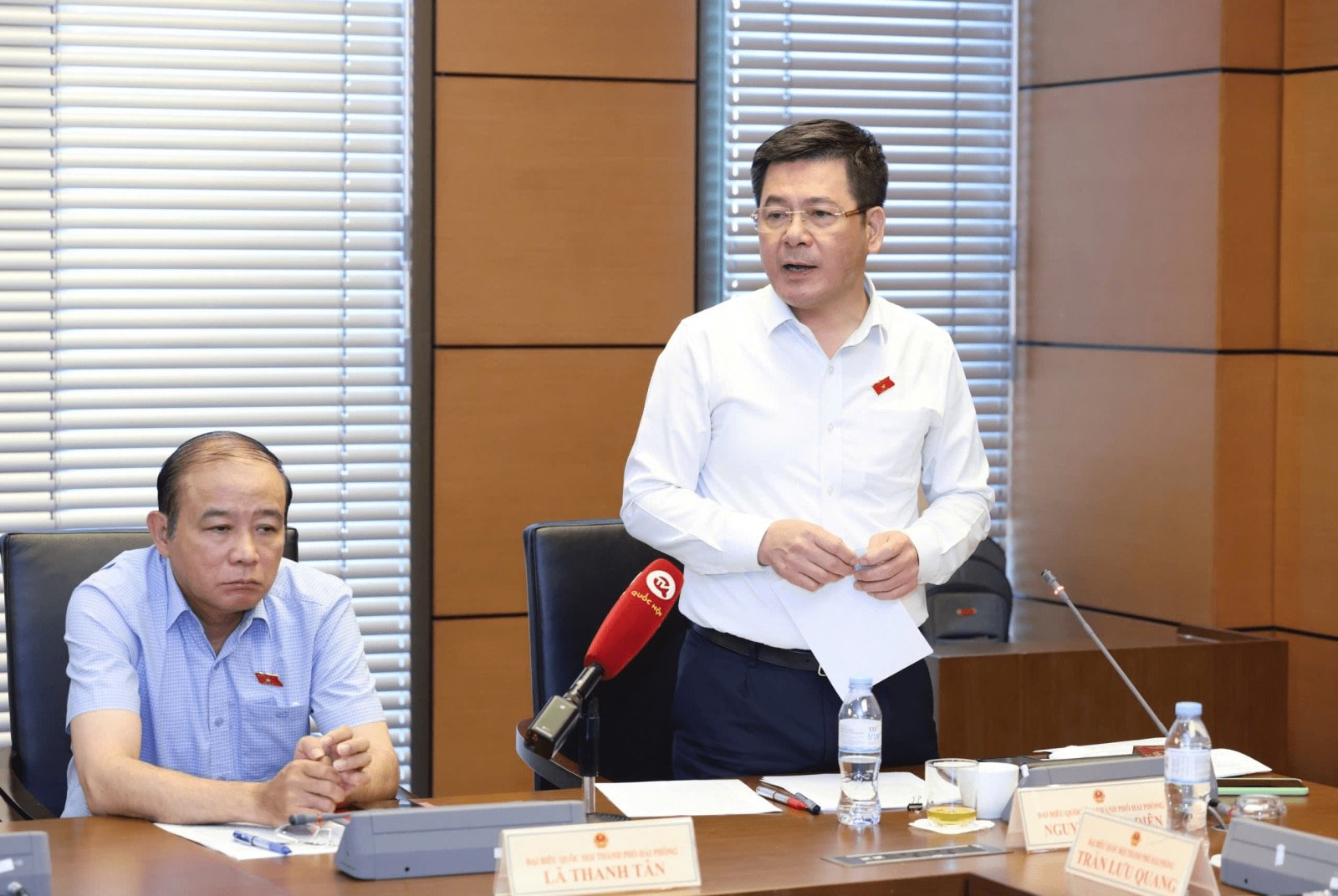
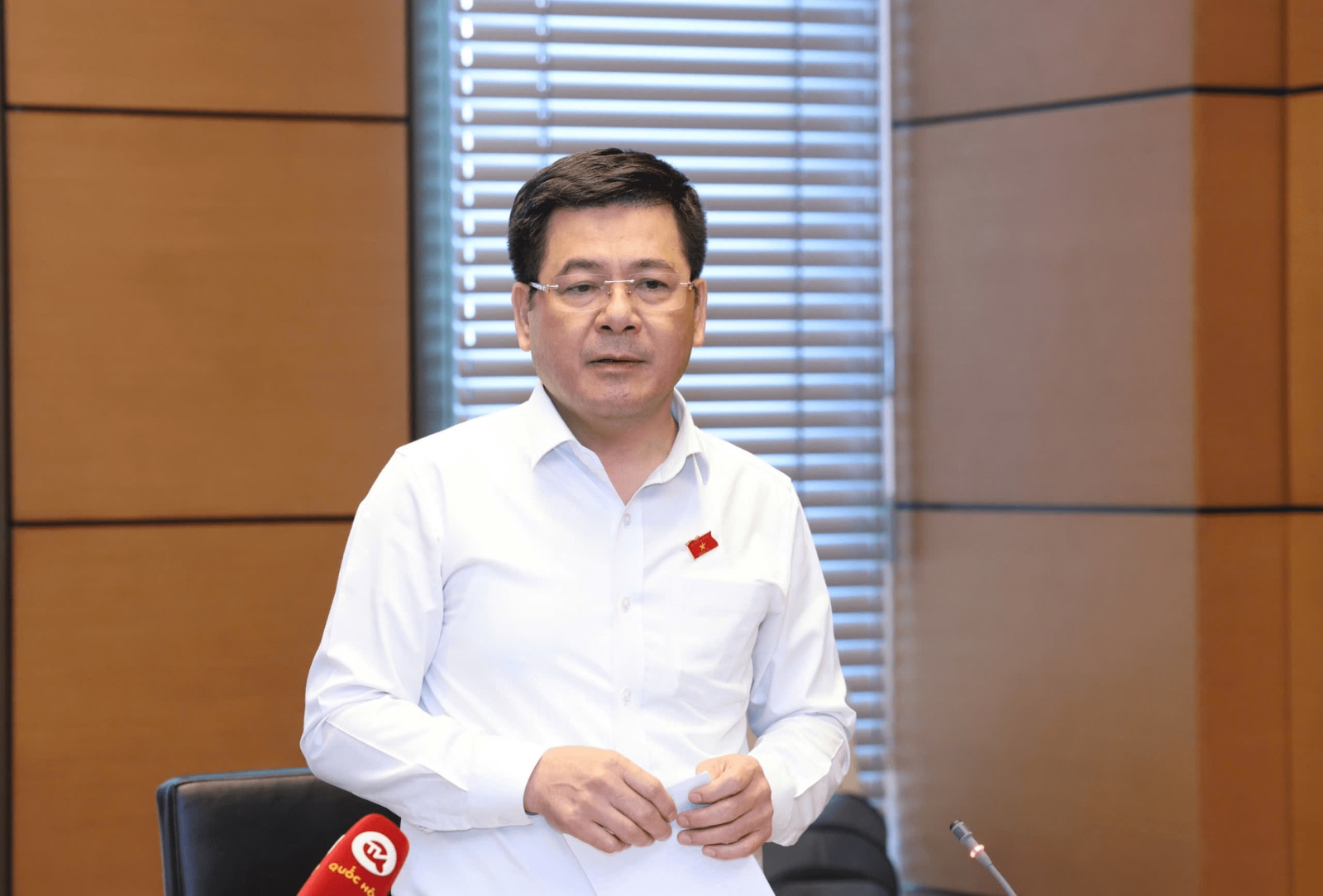
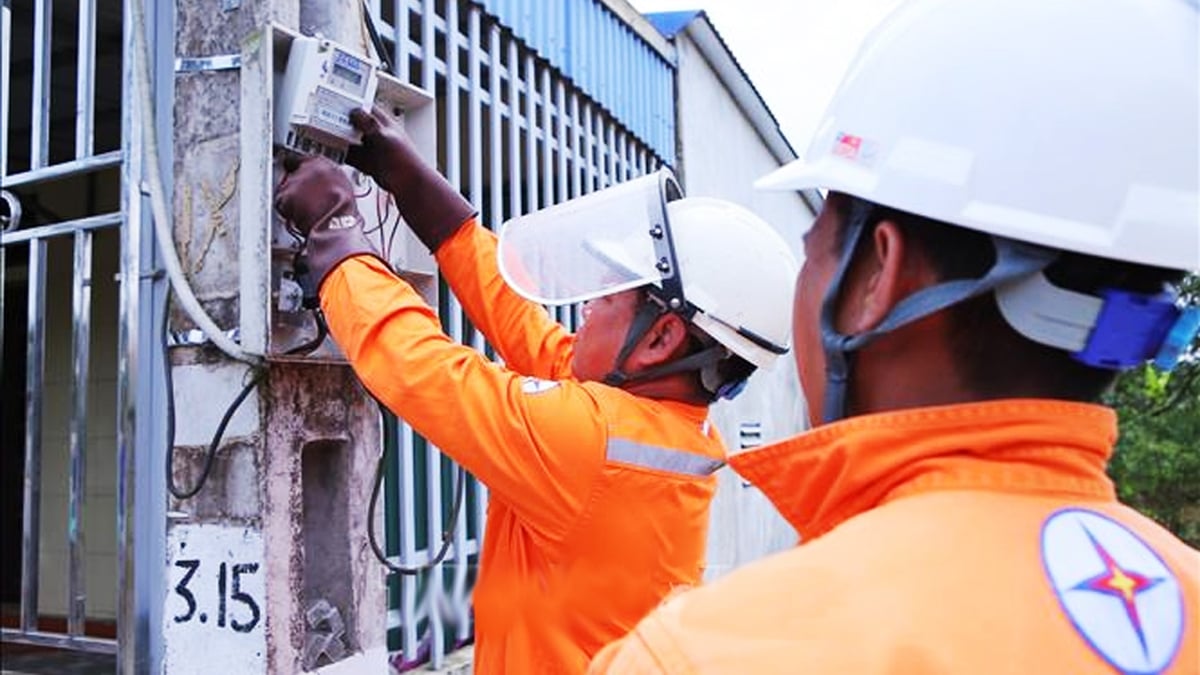


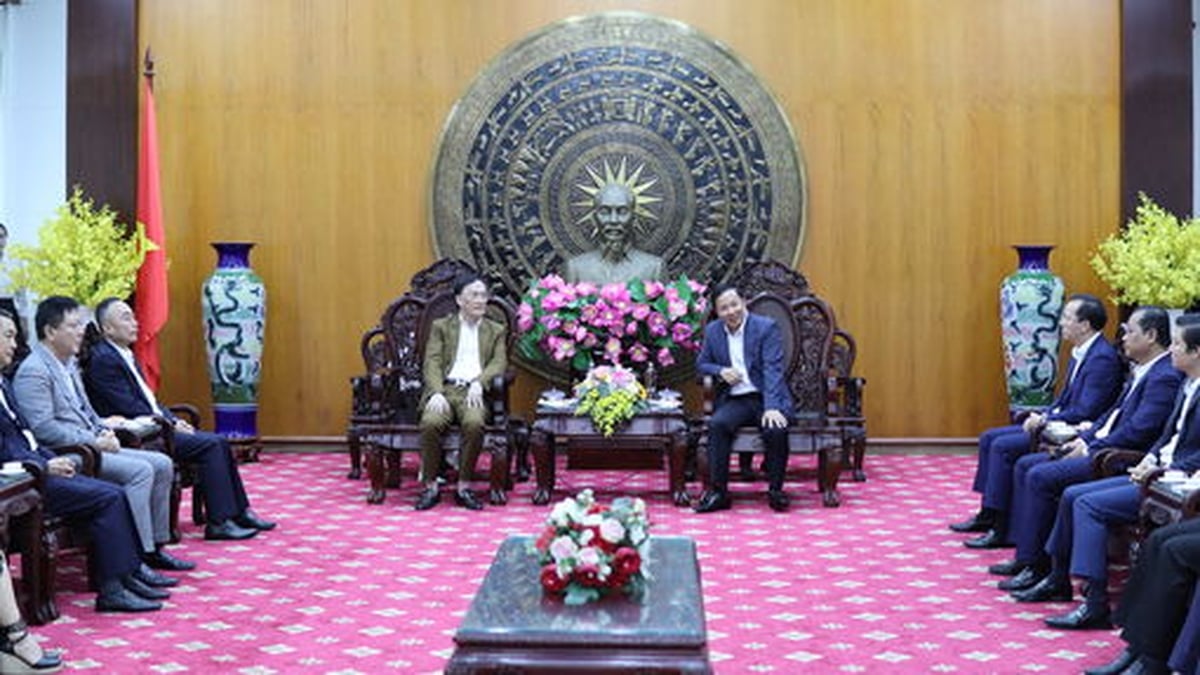
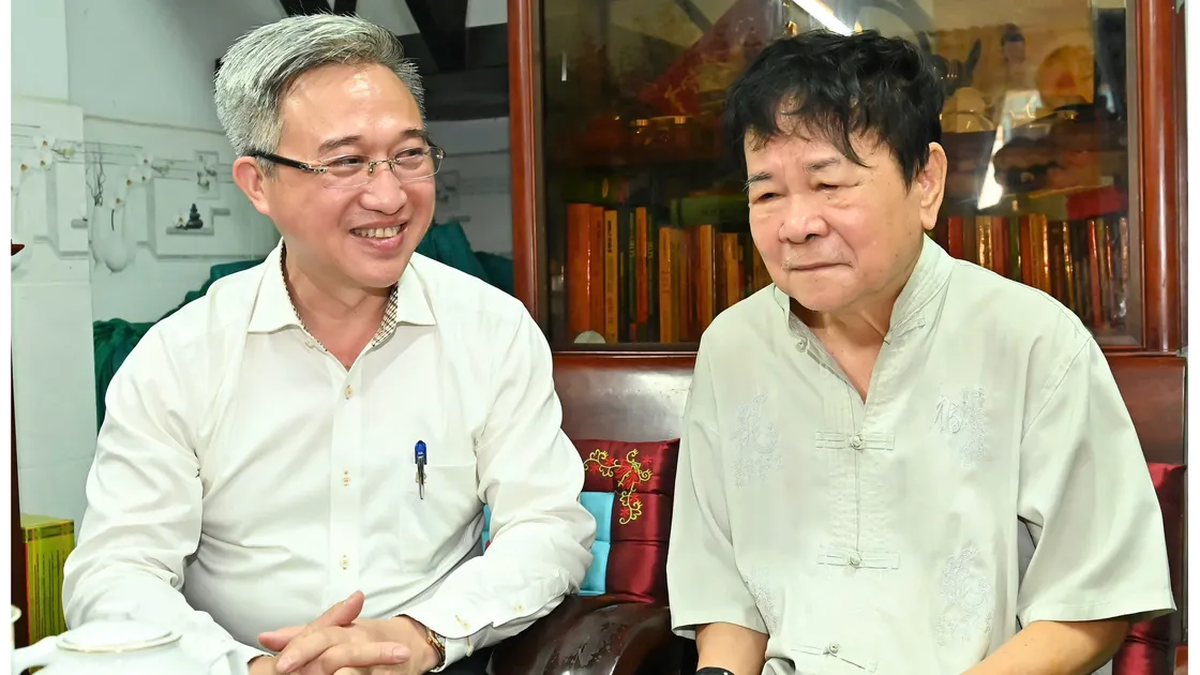
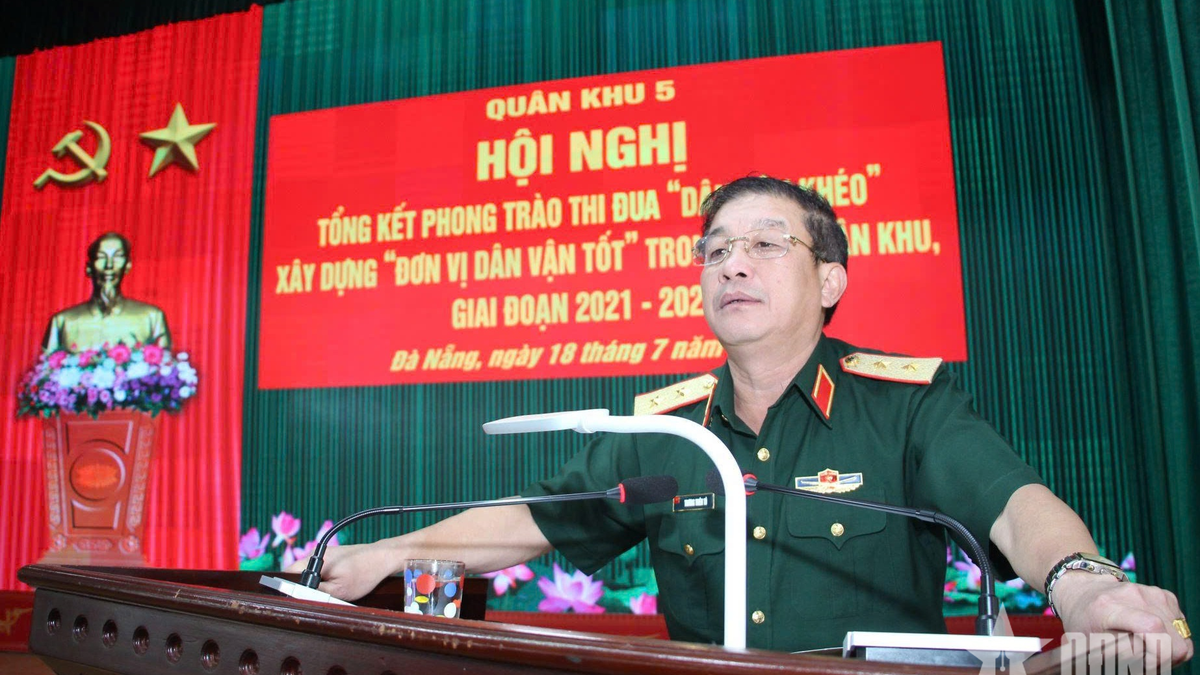




































































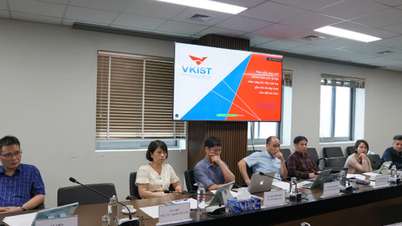
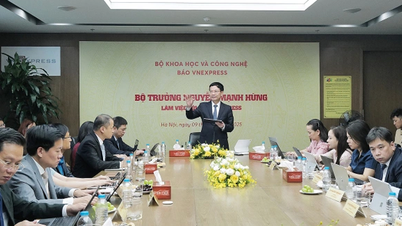
















![[Infographic] In 2025, 47 products will achieve national OCOP](https://vphoto.vietnam.vn/thumb/402x226/vietnam/resource/IMAGE/2025/7/16/5d672398b0744db3ab920e05db8e5b7d)





Comment (0)